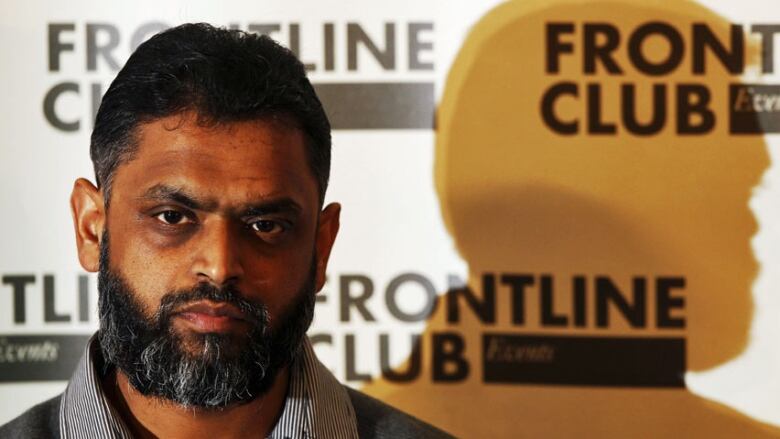Four myths about Guantanamo Bay


This week, U.S. President Barack Obama put a plan forward to close the military prison at Guantanamo Bay, and to send its 91 remaining detainees either to maximum security prisons in the US or to countries overseas.
It's been seven years since Obama signed three executive orders to close down the military prison at Guantanamo Bay.
Ever since, the rhetoric in Congress over Gitmo has been fiery from politicians of all stripes. Depending on who you ask, it's either a symbol of America's failure in the war on terror or an essential element of its national security. Separating the truth from the spin can be tricky. That's why Day 6 asked four people connected to Guantanamo for their thoughts on myths and misconceptions surrounding Gitmo.
MYTH #1: That prisoners are subjected to treatment in line with the Geneva conventions

"Torture, rendition, kidnap and false imprisonment are crimes whether they are committed by an individual, by an organization or by the world's most powerful proponent of democracy," says former Guantanamo prisoner, Moazzam Begg.
MYTH #2: That there are alternatives to Guantanamo Bay within the U.S.
"Guantanamo is a very well defended, very isolated military base. None of the facilities in the United States are," says Lee Casey, lawyer and former official in the Regan and Bush Senior administrations.
MYTH #3: That Guantanamo is just a prison

"It's like a little town behind a minefield. It has a seaport and an airport and bars. It has about 6,000 people. It has a church, a golf course. There's a McDonalds. Every night you can go to an outdoor movie theatre and see a first run movie. Far beyond the detention centre zone, the perception is that this is an incredibly safe small town in America, probably circa 1965", says Miami Herald reporter Carol Rosenberg.
MYTH #4: That language reveals the truth

"Language can be really important in trying to obscure the truth," says Toronto Star national security reporter, Michelle Shephard. There was one Lieutenant Colonel who was the head of media relations there. When he gave the tours of the jails, he would correct journalists if they used the wrong word. The one that I think made all the journalists snicker, was when we would ask about the interrogations. He would correct us and say that the proper word was reservations," says Shephard.